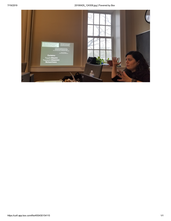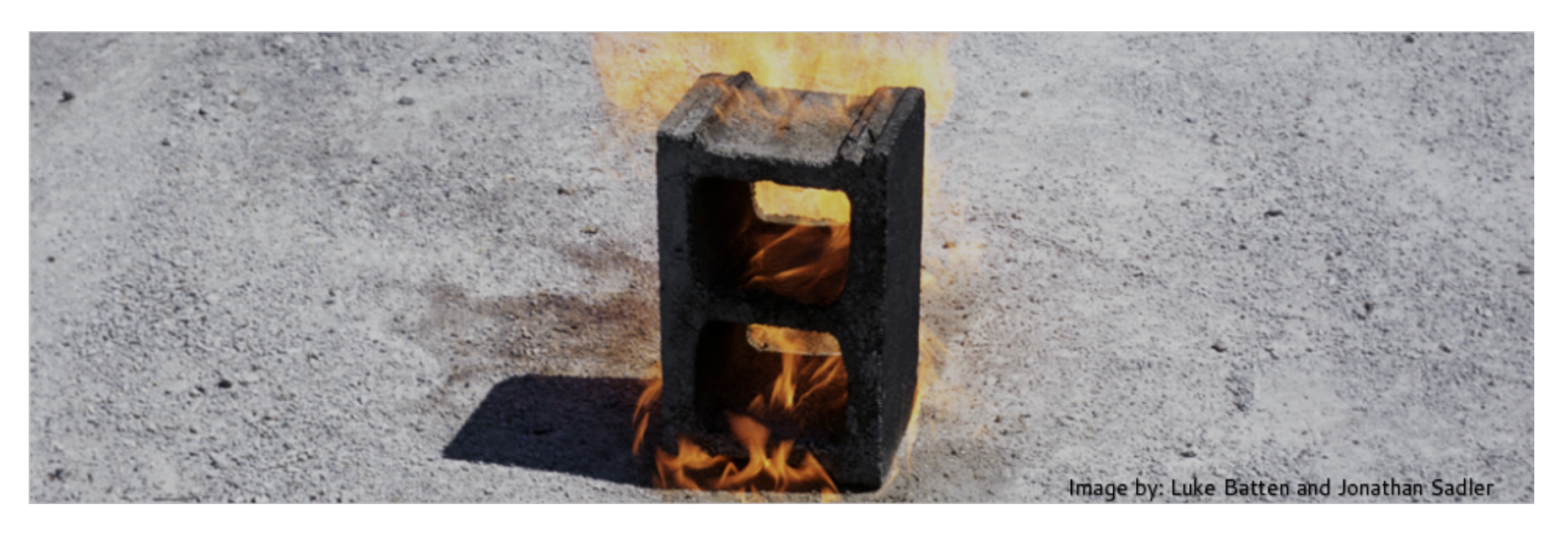
As part of its commitment to hosting an annual Armenian Studies event, the Initiative in Holocaust, Genocide, and Memory Studies (HGMS) welcomed Melissa Bilal this April. Professor Bilal received her PhD in Ethnomusicology from the University of Chicago and is currently a Visiting Assistant Professor in the College of Humanities and Social Sciences at the American University of Armenia.
Professor Bilal visited with graduate students, undergraduates, and faculty from across campus. Each time that I assumed that we had exhausted her archive of information, I watched as Professor Bilal pointed us towards fascinating sources, raised thoughtful questions because she genuinely loves to learn from others, and taught with a vision that the exchange of knowledge and stories has repercussions beyond the classroom, the library, or the dinner table.
Indeed, Professor Bilal’s presentations generated thought-provoking discussions that will undoubtedly influence the research in comparative trauma and memory studies undertaken by HGMS students and faculty. Moreover, for us graduate students who hope to become professors, Professor Bilal provided a wonderful example of mentoring in academia. I trust that at whatever institutions we call home after we graduate, we will put into practice what we witnessed. That is, I cannot wait to see how we champion our own students’ intellectual curiosity and model community-building between novice and more-experienced scholars from different disciplines.
For the HGMS faculty lecture series, Professor Bilal gave a talk titled “Injuries of Reconciliation: Being an Armenian in Post-Genocide Turkey.” Professor Bilal articulated city-level microhistories of Armenian exile, the intertwined histories of dislocated peoples in this early 20th century period of population transfer in the Ottoman Empire and Turkey, and connections between Armenians’ experiences and those of Kurds and Alevis who also continue to face political violence in Turkey. She further called our attention to the affective and embodied elements of memory work and asserted that in narrating silenced histories, storytelling and music are powerful decolonizing modes of knowing constituted by feeling.
Graduate student members of the Future of Trauma and Memory Studies reading group and Professor Bilal then visited the Rare Book and Manuscript Library on campus. Curator Cate Coker pulled out a fantastic selection of Armenian language and Armenian history texts from the library’s collections, spanning the 16th through the 20th centuries. We looked at bilingual dictionaries, books on comparative linguistic studies, travel narratives, a translation of Lord Byron’s poems into Armenian, a book of sonnets penned by the English poet William Watson about England’s response to the Hamidian Massacres of Armenians from 1894 to 1896, a book of letters written by English humanitarian relief workers who witnessed those massacres, and issues of the
Hairenik Weekly periodical from 1934.
The next day, Professor Bilal visited the Introduction to Poetry undergraduate-level course I taught this semester, which I had themed “Memories, Witnesses, Diasporas.” The course culminated in a class discussion on witnessing and bearing witness in our contemporary moment. In preparation, students read Professor Bilal’s recent journal article titled “Lullabies and the Memory of Pain: Armenian Women’s Remembrance of the Past in Turkey.” Students pursuing majors within and beyond the Liberal Arts and Sciences asked Professor Bilal questions regarding communal storytelling practices and history writing, the intergenerational transmission of traumatic cultural memory, and how remembrance practices, including telling narratives about painful pasts through lullabies, can inform the pursuit of justice for victims of mass violence.
In the evening, Professor Bilal gave a Center for Advanced Study/MillerComm lecture titled “Historians in Action: How and Why We Reclaim an Armenian Feminist Past.” Professor Bilal provided an overview of
Feminism in Armenian: An Interpretive Anthology and Digital Archive, a book and digital humanities project that she is working on with Professor Lerna Ekmekçioğlu (MIT). The project recovers work by twelve Ottoman-born Armenian feminist activist writers. It aims to end the ever-present invisibility of activist women in Armenian historiography and collective memory.
These women’s writings offer a rich archive of intellectual discourse on social justice concerns. They also register the transatlantic migration of print culture in that these Armenian women writers referenced conversations on abolition and women’s rights movements. In her lecture, Professor Bilal focused on Yelbis Gesaratsian (1830-1913). Gesaratsian published seven issues of Կիթառ/
Guitar (1862-1863), the first Armenian women’s journal which fought for women’s rights and the second women’s journal ever published in the Ottoman Empire. Unfortunately, the journal was silenced and Gesaratsian’s overall intellectual contributions were overlooked during her lifetime. However, Professor Bilal and Ekmekçioğlu’s critical return to these twelve women authors’ works is paving the way for research on Armenian feminist movements past and present as well as for comparative historiographies.
We are grateful for all the programs which made Professor Bilal’s visit possible: Holocaust, Genocide, and Memory Studies; Program in Jewish Culture & Society; April 24 Fund; Center for Global Studies; Center for South Asian and Middle Eastern Studies; Department of Gender and Women's Studies; Department of History; Department of Political Science; Department of Sociology; European Union Center; Illinois Program for Research in the Humanities; Program in Women and Gender in Global Perspectives; Russian, East European, Eurasian Center, School of Literatures, Cultures, and Linguistics; Spurlock Museum.
By Helen Makhdoumian
Bio:Helen Makhdoumian is pursuing her PhD through English and HGMS. She has spearheaded many of HGMS’s events and served as a co-organizer of the Future of Trauma and Memory Studies, an interdisciplinary Illinois Program for Research in the Humanities (IPRH) reading group, as well as a co-organizer of the HGMS graduate student conference. Her dissertation brings together but also carries forward two research frameworks in contemporary cultural memory studies—the migration
of memory as well as migration
and memory—by staging a conversation between diasporic Armenian, Palestinian, and American Indian literatures

